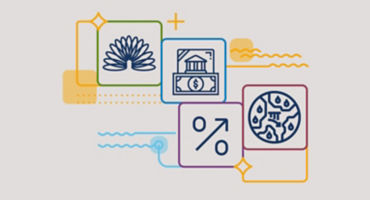Will policymakers act quickly enough?
There’s a risk that central banks may not act soon enough to prevent a deep recession given the accelerating cyclical backdrop, with a 40-year low in global unemployment and still-high inflation across most countries. However, I think the opposite is more likely. At the time of writing, the distribution of potential outcomes is exceptionally wide — with fat tails — and attaching probabilities to these outcomes is hard for policymakers. To the extent that history is a guide, it’s noteworthy that, in similar situations, policymakers have tended to set policy depending on which outcomes they wanted to avoid the most. Given the choice between financial instability — with the attendant risk of deflation — and inflation, central banks are likely to seek insurance against a scenario of financial instability and deflation, even though inflation remains very high.
After the recent hikes by the Fed and the ECB as well as the Bank of England, the Swiss National Bank and Norges Bank, we are starting to see signs that such a shift in policymakers’ thinking has begun. The Fed’s balance sheet is now expanding again and the ECB is making the outlook for rates explicitly conditional on how conditions in the financial system develop, while the Bank of Japan is no longer under pressure to abandon its yield curve control framework.
If tensions in the financial system persist, central banks may well cut rates in the second half of this year, despite the persistence of above-target inflation and high employment rates. Even a return to full stability in the financial system is now unlikely to lead to an automatic resumption of rate hikes as the hurdle for raising interest rates has become a lot higher than before the shock. Paradoxically, I think the current crisis has restored central bankers’ faith in monetary policy being able to achieve their goals, albeit with a lag, so they may be more inclined to wait to see the full effect of their policies. And even if the problems currently experienced by the banking sector are fully resolved, the shock has likely heightened concerns among policymakers that the financial system is now vulnerable to a sudden upward repricing of rates and that tightening comes with a higher cost.







